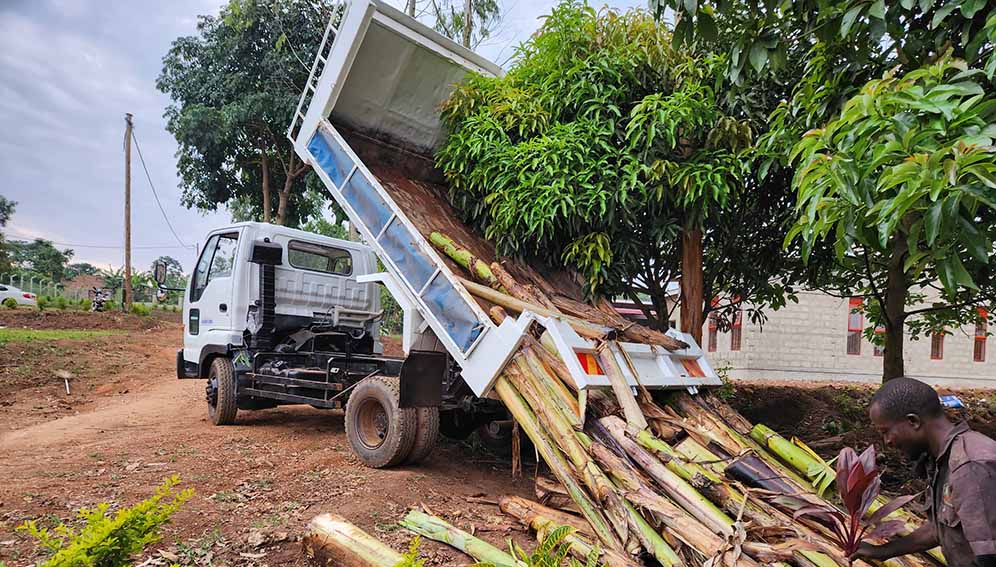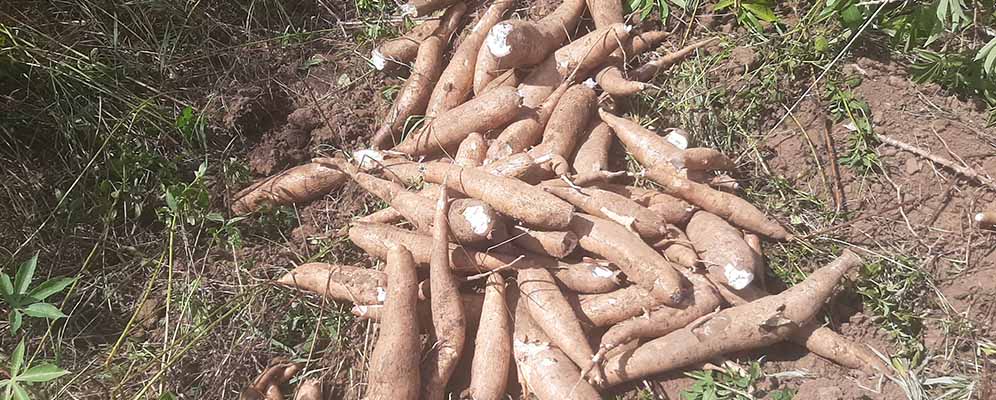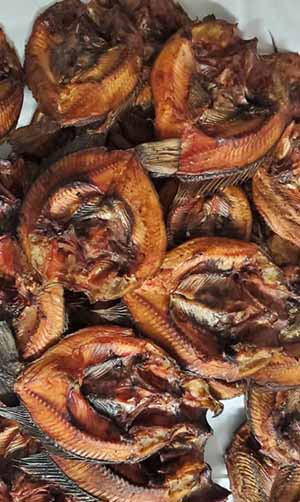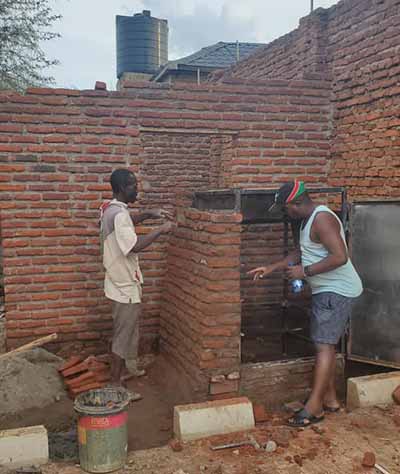SGCI News
As part of our year-end innovation highlights series, we continue to spotlight remarkable innovations supported by the Science Granting Councils Initiative (SGCI) that are driving sustainability, productivity, and improved livelihoods…
As part of our year-end innovation highlights series, we continue to spotlight remarkable innovations supported by the Science Granting Councils Initiative (SGCI) that are driving sustainability, productivity, and improved livelihoods across Africa.
The series will spotlight inspiring and impactful research stories published on our website throughout the year.
From Uganda to Malawi and Kenya, African scientists are turning everyday challenges into practical, sustainable solutions that improve lives, strengthen economies, and safeguard the environment.
Banana waste becomes a sustainable gem
Ugandan researchers are transforming discarded banana stems into textiles, hair extensions, and sanitary pads, positioning the East African nation to benefit from the growing global demand for sustainable fibres.

The Banatex-EA (Banana Textiles in East Africa) project at Busitema University has developed spinnable banana fibre suitable for textile production, offering an eco-friendly alternative to cotton and synthetics.
Project lead, Edwin Kamalha, a textile engineering lecturer, says the innovation reduces waste from banana farming while creating new income opportunities.

“If people can tap into that waste to earn an extra income, what was once discarded can become a valuable resource,” Kamalha explains.
Eco-Friendly kilns transform fish processing in Malawi
In Malawi, where traditional open-fire fish smoking exposes workers to harmful smoke and wastes vast amounts of firewood, researchers are pioneering cleaner, more efficient technology.

With SGCI support through the National Commission for Science and Technology, a team led by James Banda designed modern fish-smoking kilns that are enclosed, energy-efficient, and hygienic.
The kilns drastically reduce smoking time, process up to 100 kg of fish in two hours, and even collect valuable fish oil by-products.
“These advancements make the modern fish-smoking kiln a valuable upgrade for improving productivity, quality, and sustainability in fish processing,” Banda says.
Cassava innovation strengthens food security in Kenya
In Kenya, researchers are reimagining cassava as a key to food and nutrition security amid rising maize prices and climate challenges.
Led by Vitalis Ogemah of Masinde Muliro University of Science and Technology (MMUST), the project promotes disease-resistant cassava varieties and nutrient-rich cassava-based foods for both humans and livestock.
By identifying drought-tolerant varieties and blending cassava flours to meet the dietary needs of diverse consumer groups, the initiative is helping farmers boost income while diversifying food sources.

“Nutritionists identified the nutritional requirements of different categories of consumers and blended cassava varieties to meet those needs,” says Ogemah.
Next in the series
Stay tuned for more stories highlighting the power of science, innovation, and collaboration in transforming African communities.
Please check out the stories and let us know what you think. We would love to hear from you!
Let’s continue the conversation on our social media
Published on 11 November 2025
Related News
Voices of SGCI: Council leaders on the direction and ambition of SGCI 3
At the African Union’s Science, Technology and Innovation Week in Addis Ababa, earlier this month, leaders of science granting councils reflected on what SGCI Phase 3 represents for Africa’s science and innovation systems. From ownership and alignment to stewardship and sustainability, here are their voices…
Building Africa’s science future: inside the SGCI alliance
As Phase 3 of the Science Granting Councils Initiative launches on the margins of the African Union Summit in Addis Ababa last week, the SGCI Alliance Chair explains why this moment marks a decisive turning point for African science. Cephas Adjei Mensah describes what is…
Open call: Support for science granting councils in Sub-Saharan Africa
The International Development Research Centre (IDRC), through the Science Granting Councils Initiative (SGCI), has launched a call for proposals to support science granting councils in Sub-Saharan Africa in the establishment and operationalisation of the Capacity Strengthening Hub under Phase III of the SGCI-3. The Hub…
SGCI funded projects
Rwanda’s integrated approach to sustainable agriculture and nutrition
Project Titles & Institution Areas of Research Number of Projects being funded Project Duration Grant Amount In-Kind Distribution Council Collaboration with other councils





